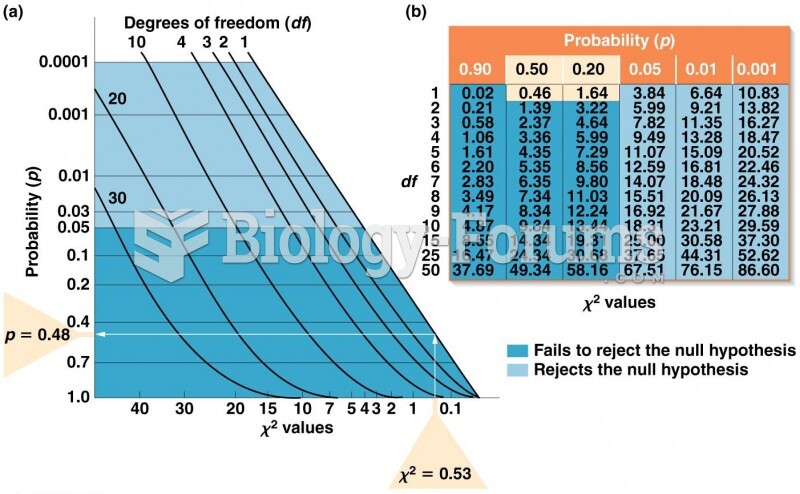|
|
|
When blood is deoxygenated and flowing back to the heart through the veins, it is dark reddish-blue in color. Blood in the arteries that is oxygenated and flowing out to the body is bright red. Whereas arterial blood comes out in spurts, venous blood flows.
Vaccines cause herd immunity. If the majority of people in a community have been vaccinated against a disease, an unvaccinated person is less likely to get the disease since others are less likely to become sick from it and spread the disease.
Malaria mortality rates are falling. Increased malaria prevention and control measures have greatly improved these rates. Since 2000, malaria mortality rates have fallen globally by 60% among all age groups, and by 65% among children under age 5.
People about to have surgery must tell their health care providers about all supplements they take.
Many supplement containers do not even contain what their labels say. There are many documented reports of products containing much less, or more, that what is listed on their labels. They may also contain undisclosed prescription drugs and even contaminants.
 The puppet, created for the Tbilisi Marionette Theatre, is controlled by forces hidden from public ...
The puppet, created for the Tbilisi Marionette Theatre, is controlled by forces hidden from public ...
 Older people who experienced stressful events in their younger years may show personal growth and ...
Older people who experienced stressful events in their younger years may show personal growth and ...





